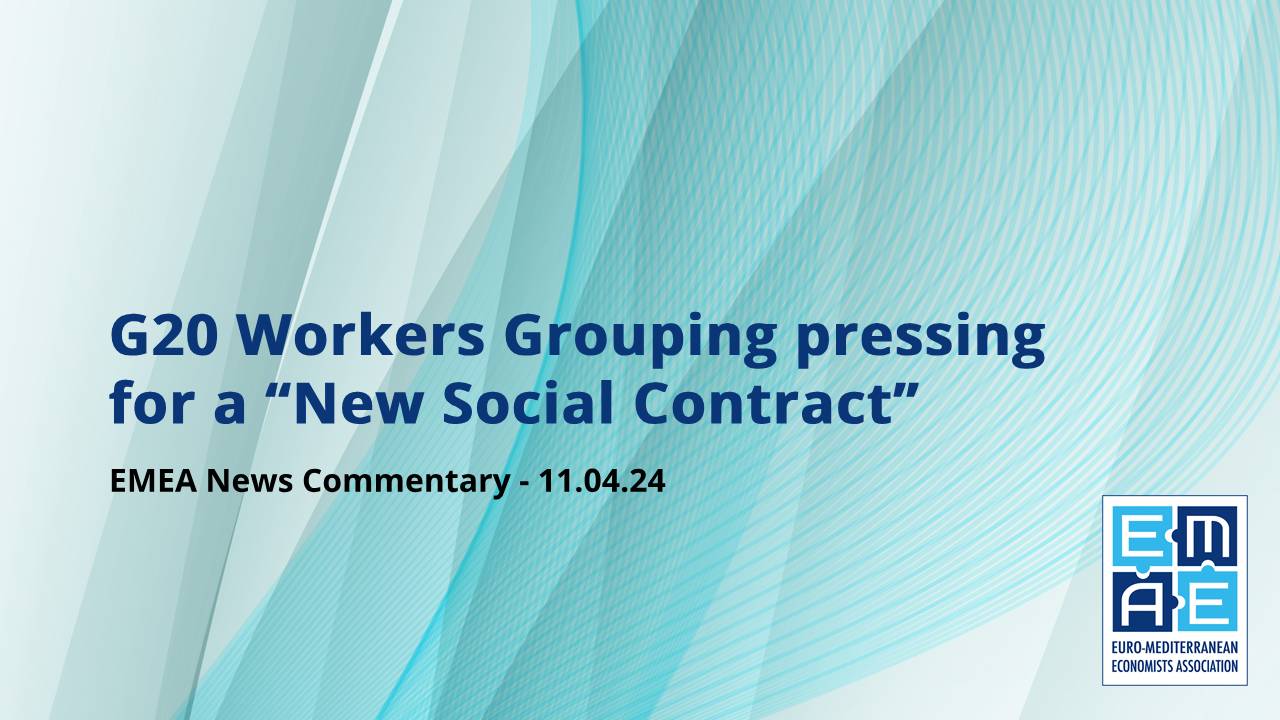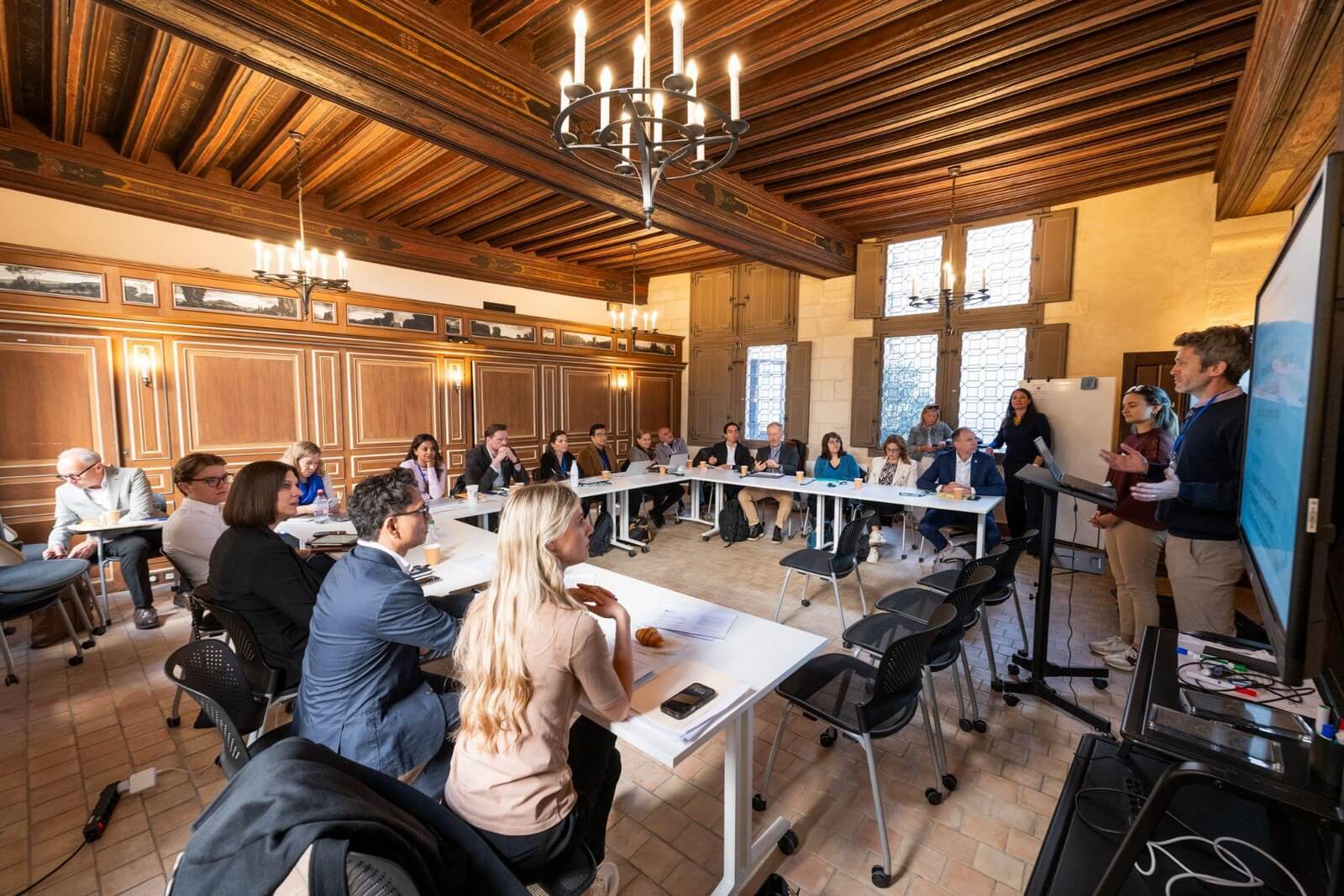The Labour 20 (L20) – the workers organisation and trade union engagement group within the G20 – have stressed the need for a “New Social Contract” at their inaugural meeting during Brazil’s G20 Presidency.
The grouping, whose aim is to generate 575 million high-quality jobs and formalise at least one billion informal jobs by 2030, said the Contract should be “grounded in institutionalised dialogue and revitalised multilateralism.”
The L20, whose main priorities are promoting equality, inclusion and social justice, want the Contract to:
- encompass provisions for decent employment opportunities,
- acknowledge the imperative of addressing climate change through a fair transition,
- guarantee dignified minimum wages and universal social protection,
- foster principles of equality and inclusion.
They also endorsed the three overarching priorities outlined by the Brazilian presidency to reform global governance institutions, promote social inclusion and combat hunger and poverty, together with advancing sustainable development and energy transitions.
In a post-meeting statement, the L20 said: “These priorities resonate with the group’s advocacy for a “New Social Contract” and are expected to prompt tangible actions from G20 countries.
The L20 grouping have been vociferous in their attempts to promote dialogue and initiate action to face inequality, as well as tackling “the impacts of digital transformation” and responding “to crises affecting workers around the world.”
Bedrock of democracy coming under threat
Their statement said that labour market transformation, encouraged by digital platforms and artificial intelligence, had “intensified inequalities, especially in poorer countries and the Global South. This situation had been compounded by ongoing wars and regional conflicts, which had led to loss of life and livelihoods, which had, in turn, disrupted food and energy supply.
“Consequently, workers experience a notable decrease in purchasing power, whilst social cohesion faces strains, polarisation increases and the bedrock of democracy comes under threat,” the statement continued.
The L20 emphasised the importance for the G20 to honour commitments from past summits. These included the promotion of collective bargaining, minimum wages, aligning wage growth with productivity, fostering social dialogue, implementing universal social protection, creating quality jobs and formalising labour practices with a focus on workplace safety.
“These commitments are pivotal in addressing income inequality and redistributing wealth,” they urged.
Gender equality and respect for diversity
A revised labour agenda, as envisaged by the L20, would be committed to a number of initiatives, including “safeguarding democracy, addressing the surge of the far right-wing, promoting solidarity economy, ensuring wage equality between genders, fostering LGBTQIA+ workplace inclusion, advancing technology, facilitating a just transition and addressing issues directly affecting the global workforce.”
Luiz Marinho, Brazil’s Labour and Employment Minister, said at the meeting: “We stand to benefit significantly when the government and employers collaborate to invest in education and training, bolster the social protection system, and uphold human and labour rights across the production chain.
“As a government prioritising the welfare of its citizens, particularly the most vulnerable, we are committed to forging a brighter future for all,” he added.
Recognising the “absolutely crucial” contribution of the L20 in championing workers’ rights, Brazil’s G20 sherpa, Ambassador Mauricio Lyrio, urged the G20 to be “more open to the aspirations of civil society.”
Antonio Lisboa, Secretary of International Relations for the Central Única dos Trabalhadores (CUT Nacional), reiterated the commitment of the Brazilian and international labour movements to advocate for workers’ rights within the G20 framework. “We must conceive a transition that is genuinely fair to ensure that workers worldwide are shielded from the adverse impacts of an inequitable energy or digital transition system,” he said.
In respect of their ambitious jobs targets which they want to see met by the 2030, the group have urged G20 leaders “to foster growth driven by environmentally sustainable and equitable employment opportunities.”
They said that reaching this objective would necessitate “investment in environmentally friendly industries and sectors, such as infrastructure development, supervision, and the green economy.” In addition, skills enhancement and workforce retaining programmes would need to be on the agenda.
Brazilian priorities aligned with new social contract development
Luc Triangle, the General Secretary of the International Trade Union Confederation (ITUC), voiced support for Brazil’s priorities during its G20 presidency and they were completely aligned with the ITUC’s deliberations on the development of new social contracts.
“These contracts are essential for ensuring a just transition to address climate concerns, incorporating labour protections such as minimum income, alongside universal social protection, equality, and inclusion,” said Triangle.
The L20 also expected G20 countries to ratify and implement the International Labour Organisation’s (ILO) core conventions, “ensuring that rights are respected and protected in all countries, and that global supply chains remain free from exploitation, precariousness, violence, harassment, informality, forced labour and child labour.”
The grouping also stated that it was “imperative to guarantee that digital transformations facilitate access to quality employment opportunities and ensure an equitable distribution of benefits stemming from profits and productivity gains.” Furthermore, it was vital to address “new challenges arising from the digitisation of the economy and the integration of artificial intelligence into workplaces and society.”
To this end, the safeguarding of workers rights should be prioritised, with focus also on “the evolving challenges associated with digitisation, such as digital disparities and the protection of personal data and privacy.”
The main L20 Summit in Brazil is scheduled for 23-24 July 2024, immediately preceding the ministerial meeting.
Workers within the G20 are advocating for the establishment of a new social contract





